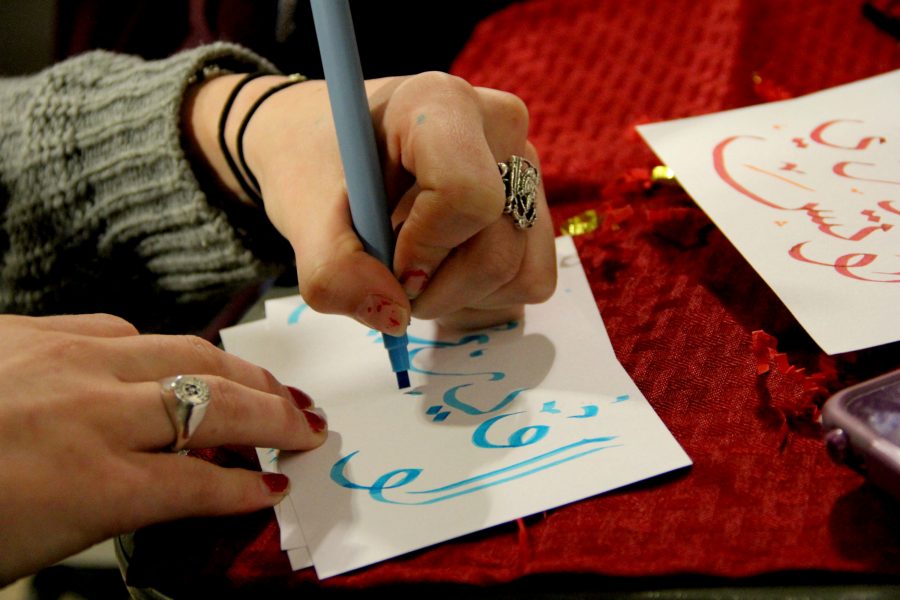The College of Arts & Sciences halted talks about offering an Arabic minor this year, with plans to renew the discussion after hiring a permanent professor of Arabic. The delay comes due, in part, to hiring and spending freezes, despite Marquette Student Government unanimously passing a recommendation for the establishment of an Arabic minor in time for the 2013-2014 academic year.
Anne Pasero, chair of the Foreign Languages and Literatures department, said the department is using this academic year to conduct interviews and the newly-selected professor of Arabic will start in fall 2014.
“For a number of reasons, mostly time constraints and staffing, we are not able to develop the (Arabic) minor in one year,” Pasero said in an email. “We prefer to wait until we have a professor on tenure-track.”
The university also would need to hire additional faculty in order to fully create an Arabic minor program, said Richard Holz, dean of the College of Arts & Sciences.
Kyle Whelton, legislative vice president of MUSG and junior in the College of Arts & Sciences, said implementing an Arabic minor is more challenging now that the university is looking for a new president and provost. He said his guess is it will take about three years before the minor can be offered to students.
“Right now the university is in a leadership transition to say the least, and it’s difficult to open new programs because that requires a certain level of funding,” Whelton said.
Departments across the university are under hiring and spending freezes, which could slow the process involved with establishing a new minor or any other new academic program.
Cole Johnson, MUSG financial vice president and a junior in the College of Business Administration, said the freezes were enacted to prevent rising tuition prices.
“After being implemented this year, the freezes were intended to allow the university to prevent its headcount expenses from exceeding new budgetary limits this year as we enacted a lower 4.25 percent tuition increase as opposed to previous years’ 4.5 percent increases,” Johnson said.
Eight Arabic classes are available for students. In order to create an Arabic minor program, the university would need to add six semesters of Arabic language classes, Whelton said.
Some of Marquette’s peer institutions, including University of Wisconsin-Milwaukee, have already implemented an Arabic minor in their circular.
Whelton said Maragret Callahan, the intermin provost and dean of the College of Nursing, is capable of setting the groundwork needed in order to bring the Arabic minor to fruition.
“While we understand that there will be some deep focus on the provost search, it doesn’t mean that the intermin provost is a lame duck,” Whelton said, “and Dr. Callahan is very interested in these ideas.”
Alexis Sammareo, a junior in the College of Arts & Sciences, created the petition last year calling for the university to adopt an Arabic minor. It received 295 signatures, which caused MUSG to take notice and eventually pass its recommendation Feb. 7, 2013.
“Arabic is currently considered a critical language by the government, meaning that our country does not have enough people who can comprehensively read, write, and speak the language,” Sammareo said. “By offering an Arabic minor, Marquette students will be more marketable for future jobs and have unique skill sets to show employers.”




